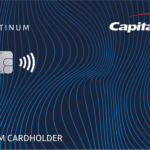Introduction
In the labyrinth of credit repair, where hope meets desperation, unsuspecting consumers often fall prey to cunning scams. These fraudulent operations promise quick fixes, soaring credit scores, and financial redemption. But behind the glossy façade lies a web of deceit. In this exposé, we unravel the most common credit repair scams, empowering you to navigate this treacherous terrain with wisdom and caution.
1. Debt Relief Service Scams
The Pitch:
Debt relief services promise to negotiate with creditors on your behalf, aiming to settle or reduce your repayment obligations. They dangle the allure of financial freedom and a clean slate.
The Reality:
- Upfront Fees: These services often charge significant up-front fees, leaving consumers financially drained before any results are achieved.
- Empty Promises: While some legitimate debt relief companies exist, many scammers fail to deliver on their promises. They may disappear after collecting fees, leaving consumers worse off.
- Robocalls and Aggressive Marketing: Beware of automated “robocalls” that flood your phone, promising miraculous debt relief. These calls often lead to fraudulent services.
FTC Action:
The Federal Trade Commission (FTC) actively monitors and cracks down on debt relief scams. They enforce fair practices, ensuring consumers are protected from unscrupulous operators.
2. Auto Loan Modification Scams
The Temptation:
Facing repossession due to car loan or lease payments? Auto loan modification scams claim to reduce your monthly payments, saving your vehicle.
The Trap:
- False Promises: Scammers prey on desperation, offering solutions that sound too good to be true. Legitimate options exist, but these fraudsters exploit vulnerability.
- Financial Risk: Consumers pay fees, hoping for relief, only to discover that their situation worsens.
FTC Vigilance:
The FTC vigilantly oversees the auto marketplace, ensuring fairness and protecting consumers from deceptive practices.
3. Credit Repair Scams
The Mirage:
Financially distressed individuals seek salvation. Scammers promise to erase negative credit information—even if it’s accurate. They claim to hold the key to a fresh start.
The Sting:
- Empty Wallets: Consumers pay for services that yield no tangible results. These scams drain wallets without improving credit.
- Legal Consequences: The FTC relentlessly pursues these bogus credit-related services, partnering with states to bring lawsuits against offenders.
4. File Segregation Schemes
The Illusion:
Scammers propose creating a new credit identity using alternate Social Security numbers or tax IDs. They promise a clean slate.
The Verdict:
- Illegal Act: File segregation is illegal. Engaging in this practice can lead to criminal charges and severe penalties.
- Consumer Beware: Avoid any scheme that suggests creating a new credit profile through fraudulent means.
5. Credit Privacy Numbers (CPNs)
The Mirage Redux:
CPNs supposedly establish a fresh credit profile, untainted by past mistakes.
The Truth:
- Fraudulent Use: Using CPNs to hide poor credit history is illegal and risky.
- Legal Consequences: Individuals caught using CPNs may face legal repercussions.
Conclusion
As you navigate the credit repair landscape, arm yourself with knowledge. Be skeptical of quick fixes, verify services, and consult legitimate professionals. Remember, true credit repair requires patience, diligence, and ethical practices. Let wisdom be your guide, shielding you from the wolves in the credit repair forest.
Sources:
- Federal Trade Commission: Debt Relief and Credit Repair Scams
- LendingTree: What to Know About Credit Repair Scams
Disclaimer: This article provides general information and does not constitute legal advice. Consult a professional for personalized guidance.




